Credentialing is critical for healthcare professionals. However, even one missing document can delay approvals and cause revenue loss. In fact, many healthcare providers overlook how complex the process can be.
To make it easier, here are nine common challenges in credentialing—and how your practice can overcome them to stay ahead.

Why is credentialing important for healthcare professionals?
Did you know that a single error in credentialing can do more than delay approvals? It can result in denied claims, compliance issues, and diminished patient trust. Credentialing not only validates a provider’s qualifications but also ensures adherence to regulations and participation in payer networks. Here’s why credentialing is vital:
- Expand Payer Network Participation: Accurate credentialing enables providers to join more insurance networks, broadening patient reach.
- Prevent Revenue Loss: Proper provider enrollment speeds up claim approvals, avoiding costly denials that impact cash flow.
- Ensure Regulatory Compliance: Regular updates help meet legal and payer requirements, minimizing penalties.
By staying proactive, practices safeguard both revenue and reputation, demonstrating a commitment to quality care.
1. Understanding the Importance of Credentialing
The credentialing process begins by gathering key documents, such as licenses and certifications, which are essential for verifying eligibility. Important documents include:
- Professional licenses
- Educational transcripts
- Board certifications
- Malpractice insurance coverage
- Proof of continuing education
Paying close attention to detail when preparing these documents can help avoid delays and ensure a smoother process.
2. Document Identification for Credentialing
Assembling a complete set of documents is the first step in credentialing. Each document—whether it’s a license or certification—serves to demonstrate your eligibility and qualifications. Essential documents include:
- Professional licenses
- Educational transcripts
- Board certifications
- Malpractice insurance coverage
- Proof of continuing education
Ensuring accuracy when compiling these documents can help expedite the process and avoid unnecessary delays.
For more detailed guidance, refer to the Credentialing Resource Center.
3. Prioritizing Insurance Partners for Faster Credentialing
Insurance reimbursement plays a critical role in today’s healthcare landscape. By focusing on building strong relationships with key insurers, healthcare providers can speed up their credentialing in Healthcare.
This includes analyzing billing patterns, understanding each insurer’s requirements, and proactively engaging with insurance representatives. These steps lead to faster approvals and quicker reimbursements, benefiting both healthcare providers and patients.
For additional insights, visit Insurance Credentialing Solutions.
4. Ensuring Data Integrity in Credentialing
Data integrity is vital to the credentialing process. By verifying credentials and conducting thorough background checks, healthcare organizations can ensure the information is accurate and trustworthy. Robust verification processes not only help maintain compliance with regulations but also protect patient safety and secure stakeholder trust.
Learn more about maintaining data integrity in credentialing at The Importance of Data Integrity.
5. Navigating the CAQH Credentialing Process
Understanding and navigating the CAQH credentialing process can seem daunting, but it’s an essential step for healthcare providers. CAQH accreditation ensures that your organization is compliant and eligible to participate in various insurance networks. Leveraging technology and automation can simplify this process, reduce administrative burdens, and ensure timely reimbursement.
For more on CAQH, visit CAQH.
6. Navigating Verification Delays in Credentialing
Verification delays are common in credentialing, often due to incomplete documentation or communication gaps. To minimize delays:
- Keep clear communication with credentialing agencies.
- Respond promptly to any requests for additional information.
- Stay proactive to resolve potential issues before they become bottlenecks.
By following these practices, healthcare organizations can keep the credentialing process moving smoothly. For more details, visit Credentialing Verification.
7. Follow-up and Tracking for Successful Credentialing
Consistent follow-up and tracking are key to successful credentialing. By maintaining regular communication with insurers and quickly addressing any requests, providers can minimize delays. Tracking the process also helps resolve issues in real-time, ensuring timely approvals and reimbursement.
For best practices on tracking credentialing status, visit Tracking Credentialing Status.
8. Recertification and Ongoing Credentialing Management
Ongoing recertification is necessary to keep credentials current and compliant with regulations. Staying organized and proactive about recertification ensures providers remain eligible and in good standing with insurance networks. Additionally, using software or outsourcing these tasks can reduce administrative strain and increase efficiency.
To learn more about recertification, visit Recertification Best Practices.
9. Seeking Expert Guidance in Credentialing
Credentialing in Healthcare can be complex, especially for practices with limited resources. Outsourcing tasks like credentialing verification, application processing, and follow-ups can ease the burden. Partnering with credentialing experts ensures a more efficient process and better outcomes.
Explore how expert guidance can streamline your credentialing process at Credentialing Experts.
Frequently Asked Questions (FAQs) on Medical Credentialing

Gain clarity on common queries surrounding medical credentialing in Healthcare, including typical timeframes, required documents, and the advantages of outsourcing tasks. Armed with comprehensive knowledge and insights, you can embark on your credentialing journey equipped to navigate its complexities with ease and proficiency.
What is the typical timeframe for completing the credentialing process?
The timeframe for completing the credentialing process can vary depending on factors such as the complexity of the provider’s credentials, the responsiveness of insurers, and the efficiency of the credentialing process. On average, the process can take anywhere from several weeks to a few months.
What documents are typically required for credentialing?
The documents required for credentialing may vary depending on the healthcare provider’s specialty, practice setting, and insurance network requirements. However, common documents often include proof of licensure, educational transcripts, board certifications, malpractice insurance coverage, and proof of continuing education.
Is outsourcing credentialing tasks a common practice among healthcare organizations?
Yes, outsourcing credentialing tasks is a common practice among healthcare organizations, especially for smaller practices or those with limited administrative resources. Outsourcing tasks such as credentialing verification, application processing, and follow-up can help streamline operations, reduce administrative burdens, and ensure compliance with regulatory requirements and insurance network standards.

